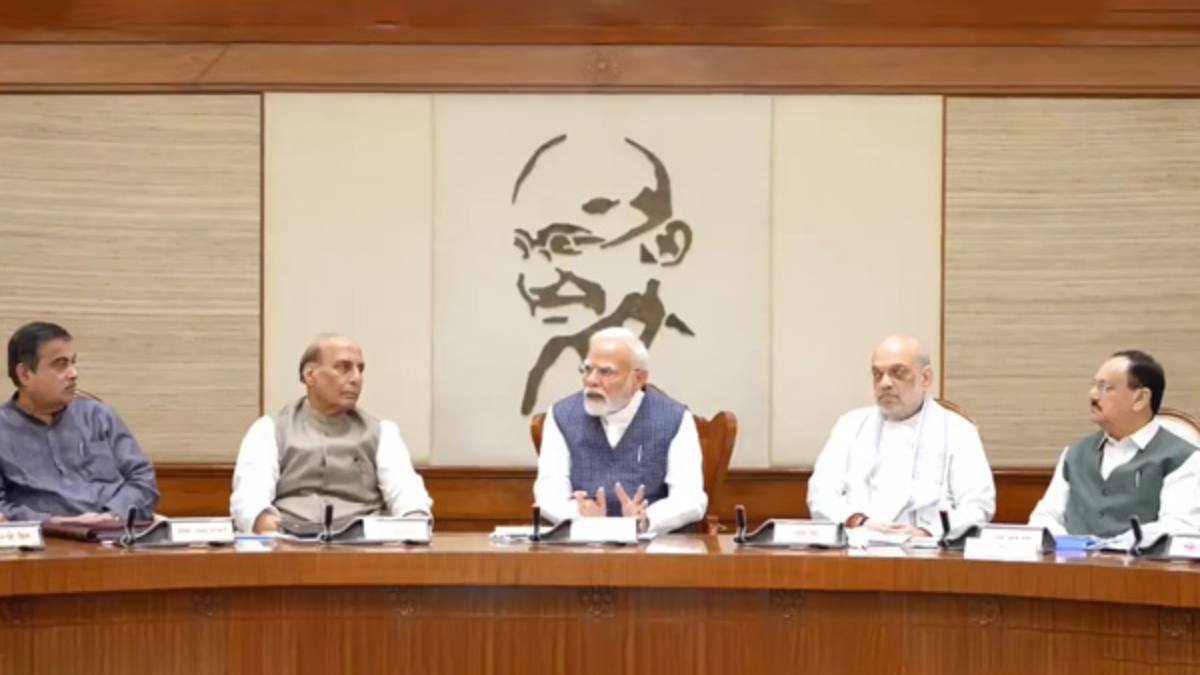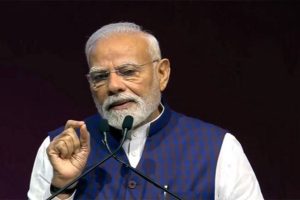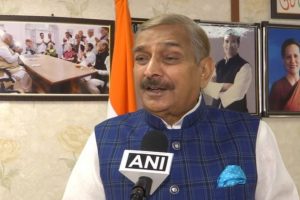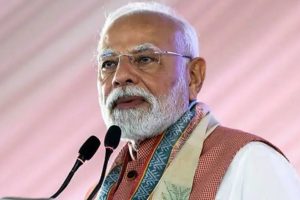Prime Minister Narendra Modi on Wednesday chaired a high-level Union Cabinet meeting following the successful execution of Operation Sindoor, a targeted strike conducted by the Indian Armed Forces against terrorist infrastructure in Pakistan and Pakistan-occupied Kashmir (PoK). During the meeting, Defence Minister Rajnath Singh briefed cabinet members on the scope and outcome of the operation, launched in response to the April 22 Pahalgam terror attack.
Earlier in the day, senior government officials, including Foreign Secretary Vikram Misri, Wing Commander Vyomika Singh, and Colonel Sofiya Qureshi, addressed a press briefing detailing the objectives and impact of the coordinated military operation.
“Operation Sindoor was launched to deliver justice to the victims of the Pahalgam terror attack and their families,” said Wing Commander Singh. She confirmed that nine terrorist camps were precisely targeted and successfully destroyed, with care taken to avoid civilian casualties and damage to public infrastructure.
Colonel Qureshi presented videos from the targeted strikes, including visuals of the Muridke training facility, where 2008 Mumbai attack perpetrators Ajmal Kasab and David Headley were trained. She further revealed that Sarjal camp in Sialkot, Markaz Ahle Hadith, Barnala, Markaz Abbas in Kotli, and Mehmoona Joya camp in Sialkot were among the high-value targets struck during the operation.
Foreign Secretary Misri condemned the brutality of the Pahalgam terror attack, describing it as a deliberate attempt to destabilize peace in Kashmir.
“The victims were mostly executed with headshots at close range, often in front of their families. The attackers intended to terrorize and send a message that normalcy is not welcome in the Valley,” he said.
Operation Sindoor marks India’s deepest and most coordinated military action inside Pakistani territory in decades. The Indian Army, Navy, and Air Force jointly carried out the operation in the early hours of Wednesday, following intelligence linking Pakistan-based terror groups to the Pahalgam massacre that claimed 26 lives.





